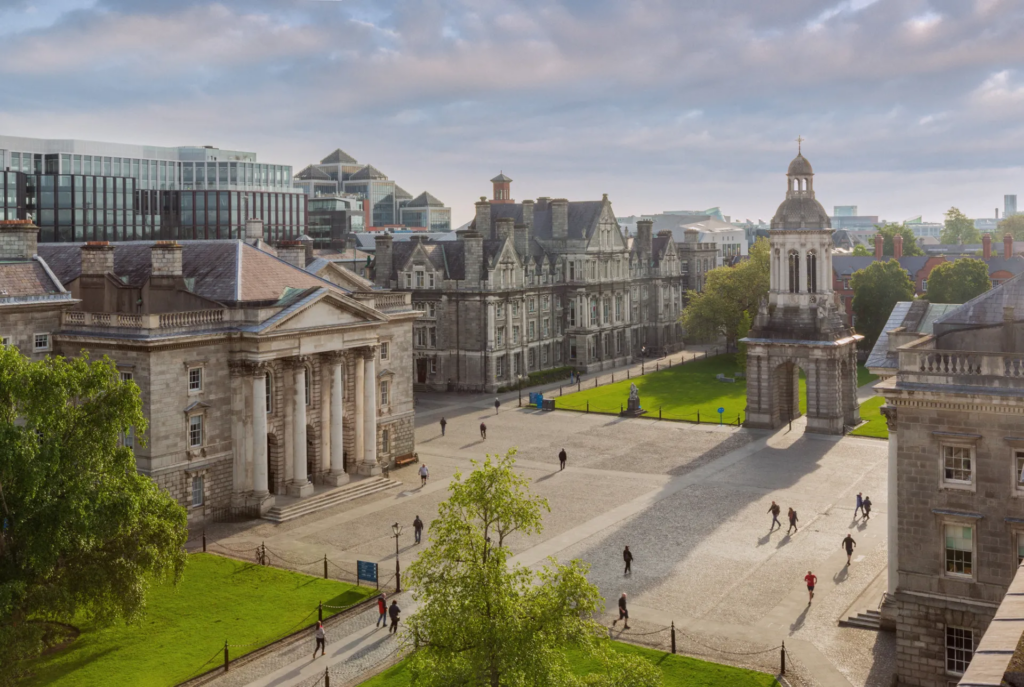
Study in Ireland
Studying in Ireland offers high-quality education, a welcoming environment, and opportunities in a thriving economy, particularly in technology, business, and the arts. Known as the “Land of Saints and Scholars,” Ireland has a rich academic tradition and is a popular destination for international students. Here’s a general overview:
Education System
Globally Recognized: Irish universities and institutions are known for their rigorous academic standards and globally recognized qualifications.
Types of Institutions:
Universities: Focus on academic and research-based education (e.g., Trinity College Dublin, University College Dublin).
Institutes of Technology: Offer career-oriented courses and practical training.
Private Colleges: Provide specialized education in areas like business, law, and design.
Popular Fields of Study: Technology, engineering, business, health sciences, humanities, and arts.
Language of Instruction: English is the primary language, making Ireland accessible to English-speaking students.
Tuition and Cost of Living
Tuition Fees:
Undergraduate programs: €9,000–€25,000 annually for non-EU students.
Postgraduate programs: €9,500–€34,000 annually, depending on the course and institution.
Medicine and related fields are on the higher end of the spectrum.
Cost of Living:
Monthly expenses range from €1,000–€1,800, including accommodation, food, transport, and personal expenses.
Living costs are higher in Dublin compared to smaller cities like Cork or Galway.
Admission Requirements
Undergraduate Programs:
High school diploma equivalent to the Irish Leaving Certificate.
English proficiency tests like IELTS (minimum 6.0–6.5) or TOEFL.
Graduate Programs:
Relevant bachelor’s degree with strong academic records.
English proficiency requirements similar to undergraduate programs.
Additional requirements may include a CV, letters of recommendation, and a personal statement.
Scholarships and Financial Aid
Government Scholarships:
Government of Ireland International Education Scholarships: Fully funded scholarships for high-achieving students.
Institution-specific Scholarships: Many universities offer merit-based scholarships for international students.
External Funding: Scholarships from organizations like Education in Ireland and Erasmus+ are also available.
Fee Waivers and Reductions: Some institutions offer partial fee reductions for international students.
Work Opportunities
Part-time Work: International students on a study visa can work up to 20 hours per week during term time and 40 hours during holidays.
Post-graduation: Graduates can apply for a post-study work visa for up to 2 years under the Third Level Graduate Scheme, allowing them to seek employment in Ireland’s thriving industries.
Lifestyle and Culture
Welcoming Society: Known for its friendly people, Ireland is a safe and multicultural country.
Rich Heritage: Students can explore Ireland’s rich history, literature, music, and natural landscapes.
Student Life: University towns like Dublin, Galway, and Cork offer vibrant social scenes, student events, and extracurricular activities.
Cuisine: Irish food is hearty and comforting, with modern cities offering diverse culinary options.
Language and Networking
English-speaking Country: This eliminates language barriers for most international students.
Global Networking Opportunities: Ireland is home to many multinational companies in technology, pharmaceuticals, and finance, offering excellent internship and job opportunities.
Advantages of Studying in Ireland
World-class education in a country known for innovation and research.
Opportunities in industries like IT, healthcare, finance, and pharmaceuticals.
Post-study work visa allows international students to gain work experience.
Vibrant cultural and academic environment.
Gateway to Europe with easy access to other EU countries.
Ireland provides a unique blend of academic excellence, career opportunities, and cultural enrichment, making it a top choice for international students.
